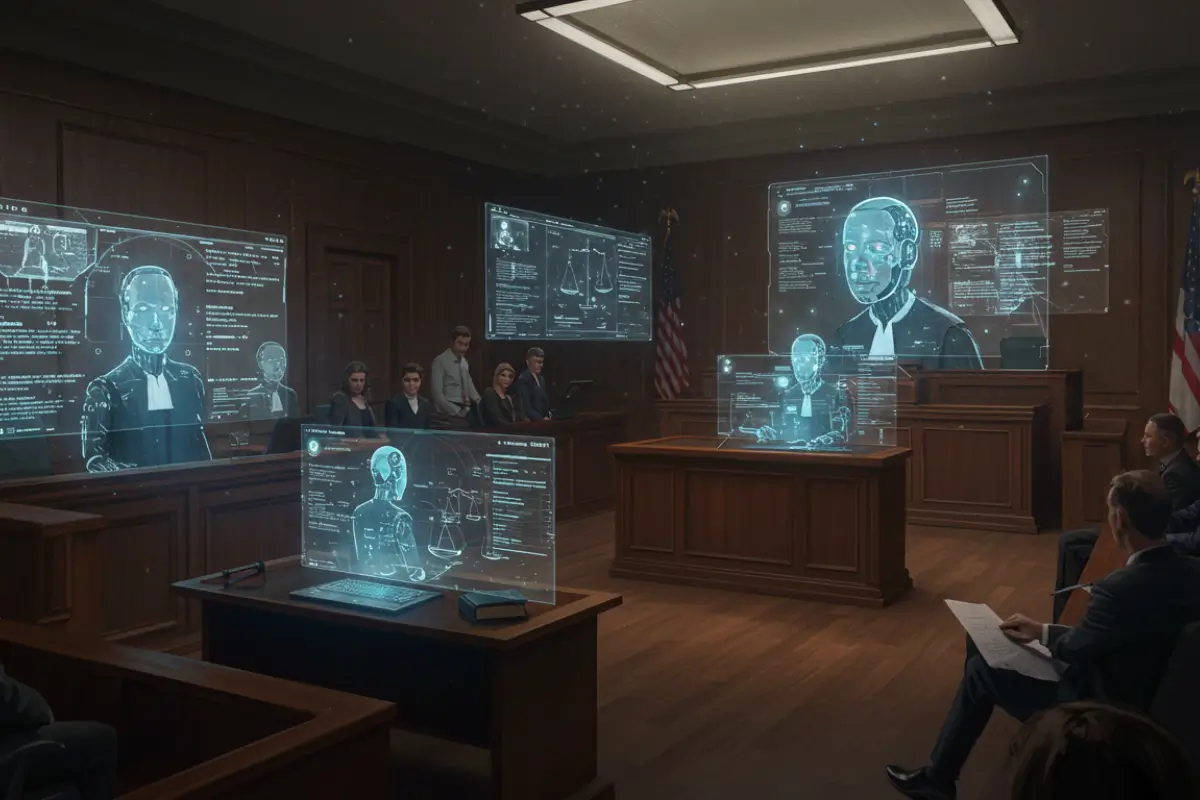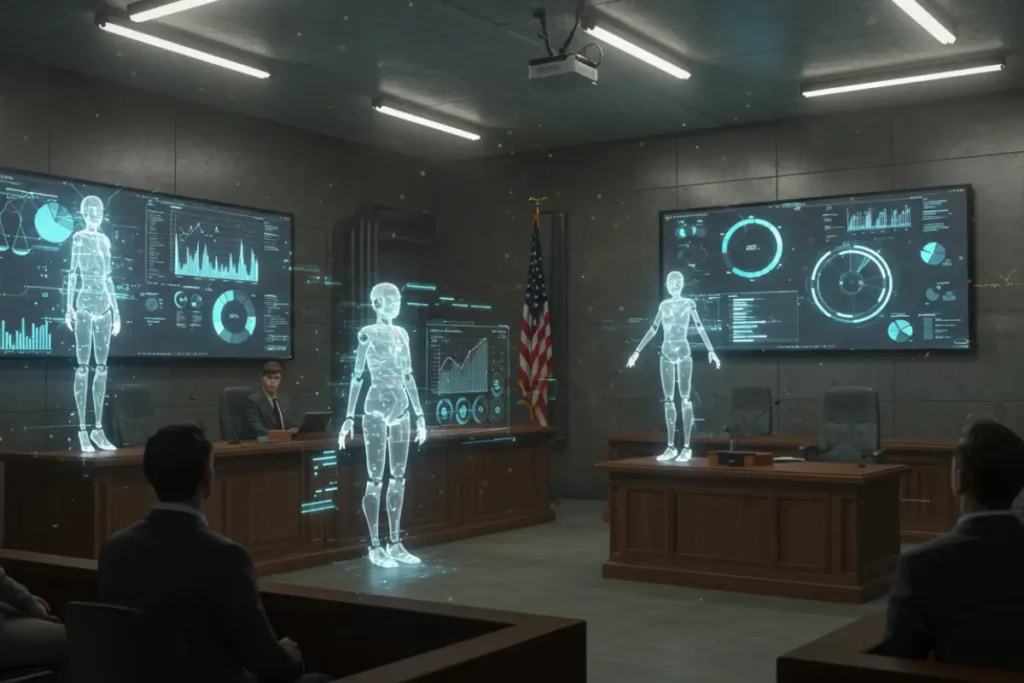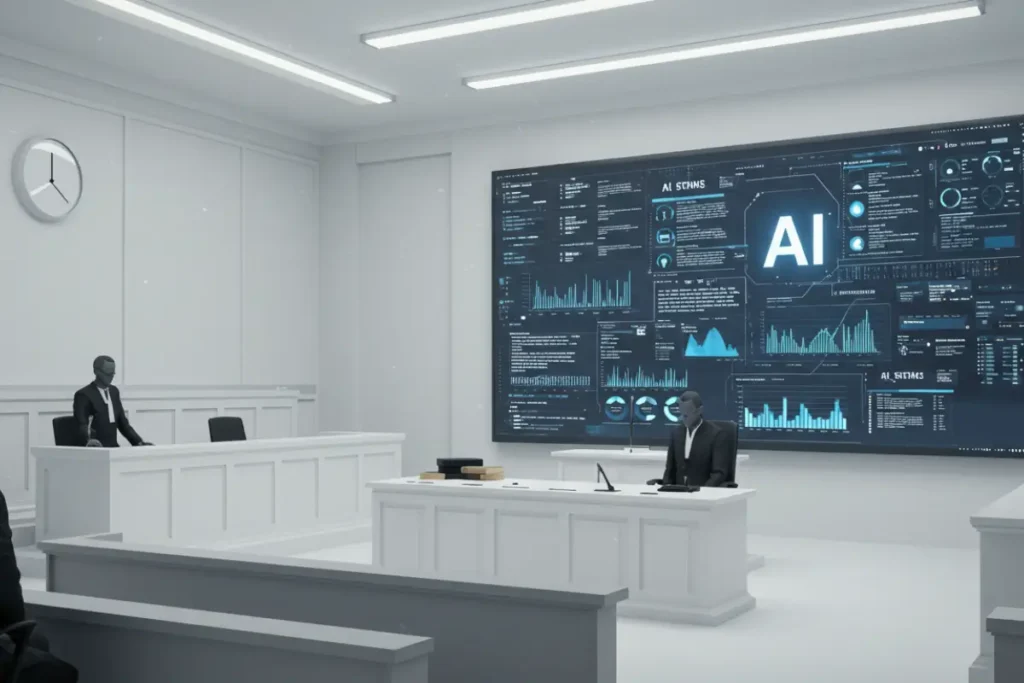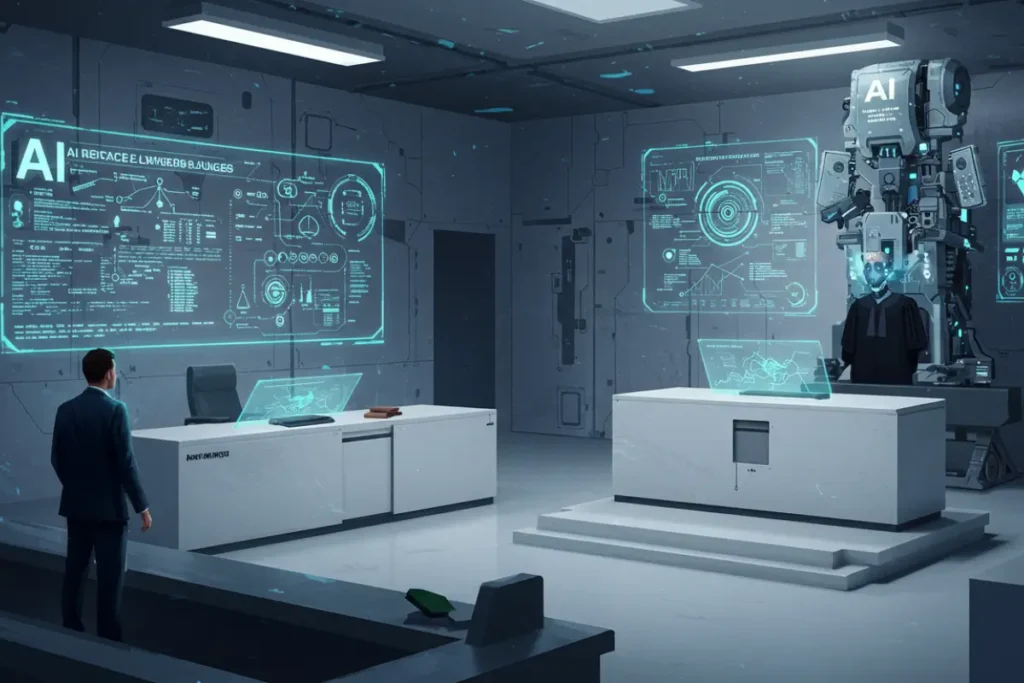Can AI Replace Lawyers and Judges?
- May 2, 2025
- 0
In a world where artificial intelligence is revolutionizing everything from creative writing to space exploration, one question looms large in the halls of justice: Can AI truly replace
In a world where artificial intelligence is revolutionizing everything from creative writing to space exploration, one question looms large in the halls of justice: Can AI truly replace

In a world where artificial intelligence is revolutionizing everything from creative writing to space exploration, one question looms large in the halls of justice: Can AI truly replace lawyers and judges?
This debate isn’t just a futuristic fantasy anymore—it’s already playing out in courtrooms, law firms, and government offices across the globe. But what would an AI-run legal system actually look like? Would it be faster, fairer, or even more accurate than humans? Or would it strip the law of its most important feature: human judgment?
Let’s take a look into the enormous implications of this question and explore the future of AI in the justice system, breaking it down piece by piece in a way that even a 12-year-old can understand.
And hey, if you find this article insightful, don’t forget to comment below and share with others! 🚀

Artificial Intelligence has already made its way into the legal profession, but not in the way you might imagine. No, there aren’t robot lawyers walking into court with briefcases—yet. Instead, AI is being used as a powerful tool to assist legal professionals in doing their jobs better and faster.
For example, AI tools like ROSS Intelligence (built on IBM Watson) and LexisNexis have been helping lawyers search through thousands of pages of legal documents in seconds.
These systems can analyze case law, statutes, and legal commentary to generate summaries and suggest legal strategies. This used to take lawyers hours or even days.
Another area where AI is flexing its muscles is contract review and management. Tools like Kira Systems and Luminance are being used by law firms and corporations to quickly identify key clauses, check for compliance, and flag potential risks in contracts—all with a speed and accuracy that even seasoned legal teams struggle to match.
But while AI can assist lawyers with research and paperwork, can it really argue a case in court? Can it understand the emotions, intentions, and subtle nuances that shape human law? These are the questions that will define the next chapter of AI in law.
🌎 Related read: Can AI Write a Book Better Than Humans?
The idea of AI replacing lawyers isn’t as wild as it seems. Already, AI systems are outperforming junior associates at tasks like due diligence, legal research, and drafting simple documents.
In fact, one study by LawGeex found that AI could review contracts with 94% accuracy, compared to 85% accuracy by human lawyers.
But what AI can’t do—at least not yet—is advocate, negotiate, or empathize. These tasks require a level of emotional intelligence and ethical reasoning that even the most advanced AI struggles to imitate.
For now, lawyers still have a unique role in advocacy, courtroom drama, and human-centric decision-making.
🔗 Useful external link: Harvard Law Today – How AI Is Changing Law Practice

This is where things get really controversial. A judge doesn’t just interpret the law—they weigh context, history, and human emotion. Still, experiments are underway to use AI in the courtroom.
In countries like China and Estonia, AI is already being tested in small claims courts to assist in decision-making. For example, China’s AI system helps judges determine penalties for minor infractions like traffic violations by analyzing past verdicts and matching them to current cases.
Estonia is developing a “robot judge” to handle low-level disputes like parking tickets.
Pros of AI Judges:
Cons of AI Judges:
These pros and cons show just how important it is to tread carefully. The legal system is not a math problem—it’s a human system that serves real people.
| Task | AI Performance | Human Lawyer Performance |
|---|---|---|
| Legal Research | ⭐⭐⭐⭐⭐ | ⭐⭐⭐ |
| Drafting Documents | ⭐⭐⭐⭐ | ⭐⭐⭐⭐ |
| Emotional Intelligence | ⭐ | ⭐⭐⭐⭐⭐ |
| Negotiation Skills | ⭐⭐ | ⭐⭐⭐⭐⭐ |
| Predicting Legal Outcomes | ⭐⭐⭐⭐⭐ | ⭐⭐⭐⭐ |
| Bias-Free Decisions | ⭐⭐⭐ | ⭐⭐⭐⭐ |

So, what does the future look like? It’s unlikely that AI will completely replace lawyers or judges anytime soon. Instead, the most likely future is one where humans and AI work together in hybrid systems.
We might see:
This human-AI collaboration could create a system that is faster, more accurate, and accessible to everyone. But it also requires constant oversight, legal reform, and clear ethical boundaries.
✨ Explore more: AI and the Future of Work
AI is here to stay in the legal world, but it won’t be taking the judge’s gavel anytime soon. While AI brings incredible tools to the table—like faster research, document review, and prediction models—it still lacks the human qualities that define justice.
Empathy, moral judgment, emotional intelligence, and the ability to weigh complex human stories are not something you can program.
So instead of fearing AI, we should embrace its strengths while guarding our uniquely human role in upholding the law.
If you enjoyed this article and want more thought-provoking content on the future of technology, law, and humanity, be sure to share this post, leave a comment, and check out other exciting articles on Futuristic Intellect! 🚀💻